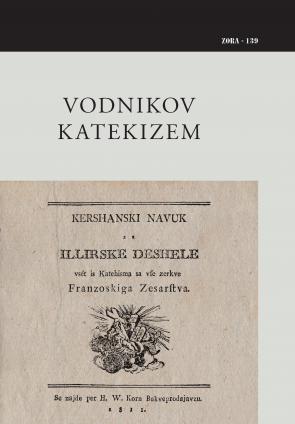Vodnikov katekizem: Kershanski navuk sa Illirske deshele vsét is Katehisma sa vſe zerkve Franzoskiga Zesarſtva
Keywords:
Valentin Vodnik, slovenian language, catechism, religious instruction, biblical hermeneutics, translation strategies, dialogue, christian terminology, sintaxSynopsis
Vodnik's Catechism: Kershanski navuk sa Illirske deshele: vsét is Katehisma sa vse zerkve Franzoskiga zesarstva/Christian Doctrine for Illyrian Lands Based on Catechism for All Lands of the French Empire. The scientific monograph Vodnik's Catechism: Kershanski navuk sa Illirske deshele: vsét is Katehisma sa vse zerkve Franzoskiga zesarstva/Christian Doctrine for Illyrian Lands Based on Catechism for All Lands of the French Empire focuses on the research and an evaluation of this work on the 200th anniversary of Valentin Vodnik (1758–1819), the last important polyhistorically oriented linguist, the follower of the cultural-linguistic enlightenment program under the auspices of Zois. It contains facsimiles of a religious textbook from 1811, written for schools who used Slovene as a teaching language, in a short period of the Illyrian provinces. In addition to the catechism with questions and answers, adapted from Napoleon's catechism for all churches of the French Empire in 1806, the book also explores social and agricultural doctrine. After two years and two editions, the book was banned and, therefore unjustly neglected. In terms of the content, which resembles the time and its creator, Emperor Napoleon Bonaparte, and in terms of language, it is a unique and an original a work that deserves to be presented to a wider professional public. As M. Orožen (2019: 231) wrote, “The vocabulary of Kershanski navuk alongside the French original means a new literary achievement of our times. Vodnik's Kershanski navuk, both linguistically and in terms of vocabulary represents a significant progress in the formation of the Carniolan-Slovene ritual literary language.
Downloads






